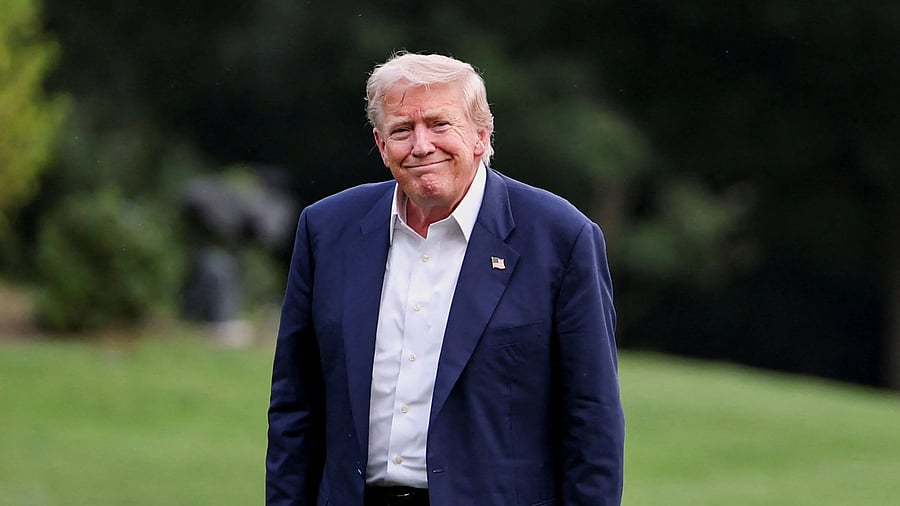
U.S. President Donald Trump.
Credit: REUTERS
President Donald Trump said late Saturday that he would issue an executive order to require voter identification for all U.S. elections, a continuation of his efforts to overhaul the nation’s election laws, which he has long attacked and falsely blamed for his 2020 election loss.
In a post on Truth Social, Trump said, “Voter I.D. Must Be Part of Every Single Vote. NO EXCEPTIONS! I Will Be Doing An Executive Order To That End!!!” He did not provide further details about the order.
He also reiterated his intention to restrict mail-in voting except for those who are very ill or in the military serving far away, as well as his opposition to voting machines.
The announcement signals Trump’s latest effort to influence election laws using an executive order, something that he has dubious authority to do. The Constitution gives the president no explicit authority to regulate elections. Rather, it gives states the power to decide the rules of elections, oversee voting and try to prevent fraud. It gives Congress the ability to override state laws on voting. Any executive order from the president regarding elections is likely to see immediate legal challenges.
Trump and his allies have started a wide-ranging effort to gain any advance they can before midterm elections, which are set for November 2026.
In August, Trump said that a team of lawyers were preparing an executive order to end all mail-in ballots and wrote on social media that the executive order would “help bring HONESTY to the 2026 Midterm Elections.” He has long opposed mail-in voting and falsely claimed it was a source of fraud after he lost the 2020 presidential election to Joe Biden.
In March, Trump signed an executive order seeking to require people to show government-issued proof of U.S. citizenship to register to vote in federal elections. The order was swiftly challenged in court, and a federal judge blocked the vast majority of the order in June.
The judge, Denise J. Casper of the U.S. District Court for the District of Massachusetts, sided with states that had sued to stop the requirements, writing in her judgment that the states were likely to succeed in showing that the order exceeded Trump’s authority and risked disenfranchising some of the electorate. Casper was appointed by President Barack Obama.
“The Constitution does not grant the president any specific powers over elections,” she wrote.